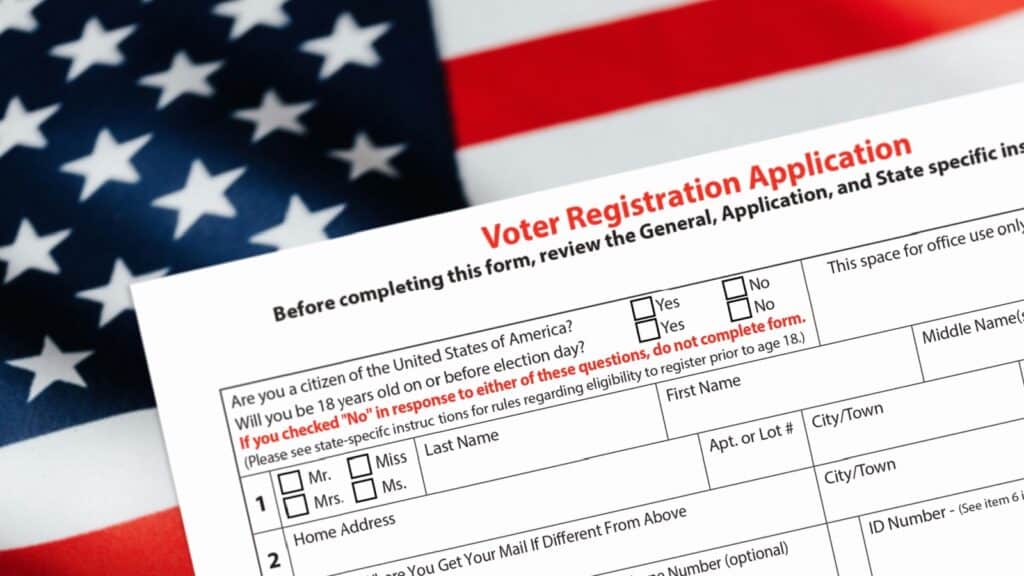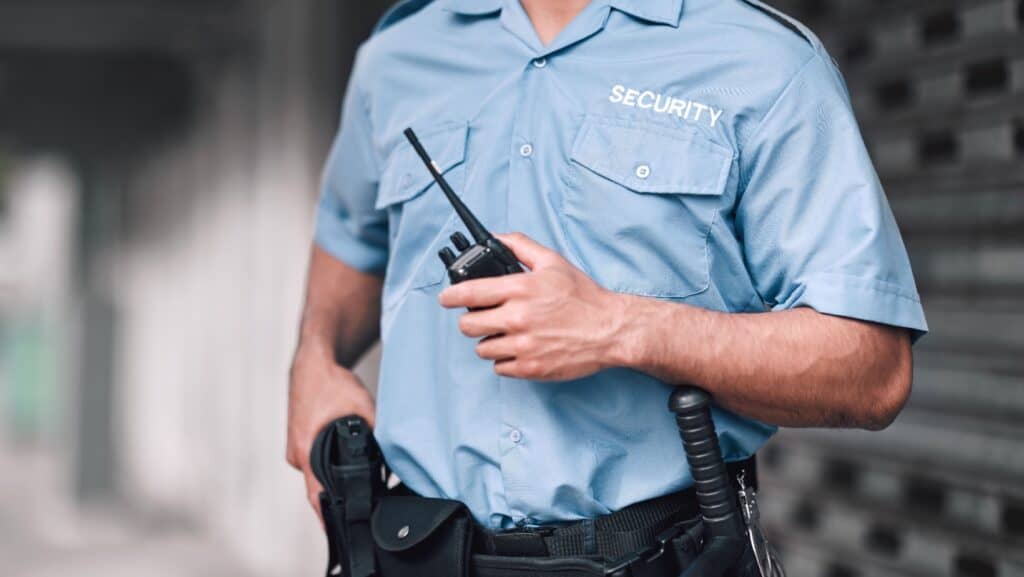When Do You Really Need to Show Your ID? Understanding Your Rights In 2025
In the United States, carrying identification is not legally required in many situations, but having the right form of ID can make daily life significantly easier. From driving a car to boarding a flight, certain forms of identification are legally required. However, there are also many scenarios in which you are not legally obligated to show your ID, despite common misconceptions. This article explores what types of identification U.S. citizens and immigrants should carry, who has the right to ask for ID, and when you can refuse to provide it.
Please note that suggestions and requirements may change. With the new, second Trump administration, this has become something to keep track of.
Changes As of 2025 You Should be Aware Of

- REAL ID: Previous administrations delayed enforcement; Trump’s May 7 deadline is final.
- Gender Markers: Biden’s policies allowed X markers and self-certified gender changes; Trump reversed these.
- Immigration Checks: The ARA’s broad enforcement marks a shift from prior focus on criminal immigrants to wider documentation demands.
These changes reflect the administration’s emphasis on stricter identity verification, with significant implications for travel, civil liberties, and LGBTQ+ rights. For more info see below.
REAL ID Enforcement Begins May 7, 2025

- New Federal Rule: Starting May 7, REAL ID-compliant identification (marked with a star) is mandatory for boarding domestic flights, entering federal buildings, and accessing military bases. Non-compliant state IDs or driver’s licenses will no longer be accepted.
- Alternatives: Acceptable IDs include U.S. passports, passport cards, DOD IDs, and Trusted Traveler cards.
- Context: The REAL ID Act passed in 2005 but faced repeated delays. The Trump administration finalized enforcement under a phased approach, with no further deadline extensions announced.
- State Compliance: All states now issue REAL ID-compliant licenses, but individuals must proactively upgrade non-compliant IDs at their DMV.
- Travel Disruptions: An estimated 55 million Americans lack REAL IDs or passports, risking airport delays if they don’t obtain compliant IDs by the deadline.
- Documentation Requirements: Upgrading to a REAL ID requires proof of identity (e.g., birth certificate), Social Security number, and residency (e.g., utility bills).
- This rule reflects the administration’s emphasis on stricter identity verification, resolving decades of delays in implementing post-9/11 security standards. Travelers are urged to verify their ID status to avoid disruptions.
Expanded Immigration-Related ID Mandates

- Executive Order on Immigrant Documentation: Trump invoked the 1940 Alien Registration Act (ARA), requiring all immigrants to carry proof of legal status (e.g., Green Cards, visas) or face civil/criminal penalties. While aimed at undocumented individuals, civil rights groups warn this could lead to wrongful detentions of U.S. citizens who cannot immediately prove citizenship during law enforcement interactions.
- Impact on Citizens: Advocates argue the policy effectively creates a de facto citizen registration system, pressuring all individuals to carry ID to avoid arrest. A 2025 Government Accountability Office report noted prior ICE errors, including mistaken deportations of U.S. citizens.
Restrictions on Gender Markers in Federal IDs

- Executive Order on Gender Recognition: Federal IDs, including passports, now only recognize male or female markers based on sex assigned at birth. The State Department halted processing of X gender markers and gender changes for transgender, nonbinary, and intersex applicants.
- Impact: Existing passports with X markers or updated genders remain valid until expiration, but renewals will revert to birth-assigned sex. This creates challenges for travelers whose gender identity doesn’t match their documents.
- State Conflicts: While federal policy doesn’t override state ID rules, discrepancies may arise with REAL ID compliance if states allow nonbinary markers.
Voter ID Advocacy

- Pressure on States: Trump has urged states like California to adopt strict voter ID requirements for in-person voting, threatening to withhold wildfire aid. California currently requires ID for voter registration but not at polls.
- National Context: Fifteen states, including key battlegrounds like Pennsylvania, lack voter ID laws for polling places.
Types of Identification You Should Carry

The most important forms of identification U.S. citizens should consider carrying include:
1. Driver’s License or State-Issued ID

- A driver’s license is the most commonly carried form of identification. It serves both as proof of identity and authorization to drive. If you do not drive, you can obtain a state-issued identification card, which serves the same purpose minus the driving privileges.
- State-issued IDs are recognized nationwide and are often required for age verification, banking, and medical services.
- Please note: All driver’s licenses will ultimately need to become REAL ID compliant. For an in-depth FAQ on the REAL ID visit: The Department Of Homeland Security website.
2. Passport or Passport Card

- A passport is essential for international travel, but a passport card can also serve as a federally recognized ID for domestic travel and some official purposes.
- It is advisable to keep your passport in a secure location rather than carrying it daily unless you are traveling.
3. Social Security Card (or Memorization of the Number)

- A Social Security card is rarely required in day-to-day activities, but knowing your Social Security number is important for employment, tax forms, and some banking transactions.
- Carrying the actual card is discouraged due to identity theft concerns.
4. Military ID (For Service Members and Veterans)

- Active duty military members, reservists, and some veterans are issued military identification cards that grant access to bases, benefits, and certain discounts.
5. Health Insurance Card

- Carrying a health insurance card or having digital access to it is useful in case of medical emergencies.
When Are You Required to Show ID?

While there is no general law requiring citizens to carry ID at all times, there are specific instances where showing ID is necessary:
Driving a Vehicle

- If you are operating a motor vehicle, you are required to have your driver’s license with you. If stopped by law enforcement, failure to present a valid license can result in fines or penalties.
Boarding an Airplane

- As of May 7, 2025 the Transportation Security Administration (TSA) and the Department of Homeland Security requires a REAL ID-compliant driver’s license, state ID, or passport to board a domestic flight. For international flights, a passport is mandatory.
Purchasing Age-Restricted Items

- When buying alcohol, tobacco, or marijuana (where legal), you must present a government-issued photo ID for age verification.
Entering Certain Government Buildings or Facilities

- Some government buildings, military installations, and secure facilities require a valid form of ID for entry.
Applying for a Job or Government Services

- Employers require valid identification for employment verification under federal law (I-9 form). Government benefits, such as Social Security, Medicare, or food assistance programs, also require ID for enrollment.
Voting (in Some States)

- Some U.S. states require voters to present an ID at the polls. The types of acceptable IDs vary by state, and some allow voters to cast a ballot without an ID by signing an affidavit. Be sure you know what your state requirements are before heading to the polls! You can check that out here.
Banking and Financial Transactions

- Opening a bank account, cashing a check, or conducting certain financial transactions often requires a valid photo ID.
When Are You NOT Required to Show ID?

While certain situations mandate identification, there are also instances where you do not have to provide it:
Walking in Public or Being Stopped by Police Without Cause

- In the U.S., you are not required to carry ID while walking in public. Police may ask for your name, but unless they have reasonable suspicion of a crime, you generally do not have to provide identification.
- Some states have “stop and identify” laws that require individuals to verbally identify themselves to police, but even in these states, presenting physical ID is not necessarily required.
Interacting with Private Security Guards

- Private security guards do not have the same authority as law enforcement. If a security officer requests your ID, you are generally not required to provide it unless you are in a private business that has policies requiring it.
When Shopping or Entering a Store

- Retail stores cannot require you to show ID unless you are purchasing age-restricted items or using a credit card for verification.
At a Routine Traffic Stop as a Passenger

- If you are a passenger in a vehicle, you are not required to show ID unless the officer has a legal reason to suspect you of a crime. Learn more here.
When Asked by a Random Person or Business

- You do not have to show ID to random individuals, landlords (unless verifying a rental application), or businesses unless engaging in a transaction requiring identity verification.
What to Do If Asked for ID Unnecessarily

If someone asks for your ID and you are unsure whether you must comply, consider the following steps:
- Ask Why: Politely ask why they need your ID and whether it is legally required.
- Know Your Rights: If law enforcement requests ID without cause, ask whether you are being detained. If not, you can refuse. Orient yourself to which states have “stop and identify” laws and what those obligate you to.
- Stay Calm: Avoid confrontation and, if necessary, request to speak to a supervisor or legal counsel.
Conclusion

While U.S. citizens are not legally required to carry identification at all times, certain situations demand it. Having a driver’s license, state-issued ID, or passport can be beneficial for convenience and verification purposes. However, knowing your rights is equally important, as there are many instances where you are not obligated to show ID. Understanding when and where identification is required helps protect your privacy and ensures you comply with legal requirements when necessary.
How To Appeal A Denied Health Insurance Claim Successfully

Health insurance is designed to provide a safety net for medical expenses, but dealing with a denied claim can be a frustrating and stressful experience. If your health insurance claim has been denied, it’s essential to know that you’re not alone and that many claims are successfully overturned upon appeal. Here’s a comprehensive guide on what to do if your health insurance claim is denied and the steps you can take to maximize your chances of a successful resolution.
READ: How To Appeal A Denied Health Insurance Claim Successfully
7 Ways to Secure Health Insurance Coverage After Losing Your Job

Losing employment can feel like navigating turbulent waters without a compass. The uncertainty of health coverage adds to the stress. However, understanding your options can bring clarity and relief. We understand the challenges that come with such a situation and offer clear pathways to secure coverage. Let’s explore the options.
READ: 7 Ways to Secure Health Insurance Coverage After Losing Your Job
Join Us

Join us on this empowering journey as we explore, celebrate, and elevate “her story.” The Queen Zone is not just a platform; it’s a community where women from all walks of life can come together, share their experiences, and inspire one another. Welcome to a space where the female experience takes center stage. Sign up for our newsletter so you don’t miss a thing, Queen!








